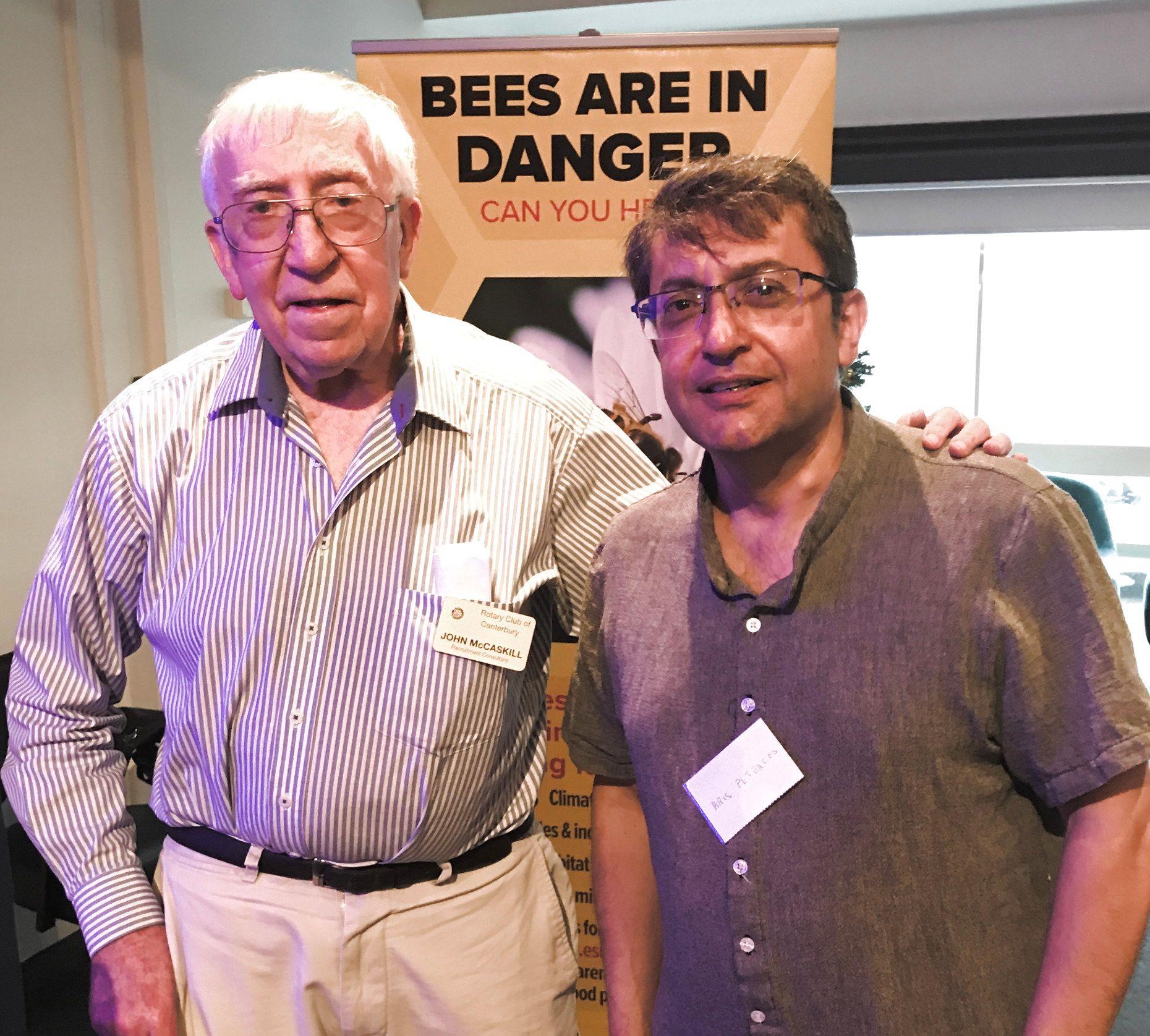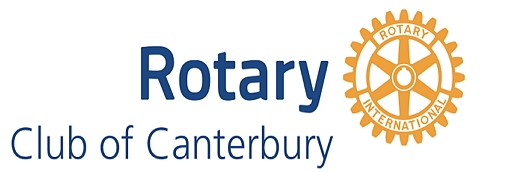
We had another energetic and enthusiastic meeting last Monday with around 50 members and guests challenging our catering capacity with a jampacked program to complete our Clubroom events for 2019.
Our guest speaker was Aris Petratos, President of the Victorian Apiarist Association and member of our Rotarians for Bees Committee. Aris has recently returned from the world beekeeping conference called Apimondia, which was held in Canada. He spoke about the very latest developments and challenges confronting bees and other pollinators and the importance of their survival.
His fascinating talk started with a challenge. Everyone in the room regularly tasted and enjoyed honey on a very regular basis but very few could actually answer the question about what is honey and what is in it? The Apimondia conference focused on major industry subjects including beekeeping economy, bee biology, bee health, pollination and bee flora, beekeeping technology and quality, apitherapy and beekeeping for rural development.
Aris explained the full ramifications of the verroa mite , the devastation and hive collapse it has caused in Europe and USA and the fact that Australia is fortunately the only nation currently free of the mite. (despite two incursions which have fortunately been identified and destroyed). It was alarming to learn about the impact on our lifestyle, the eco chain and our economy which would occur if the verroa mite devastated recreational and commercial beekeeping in Australia. One in every three mouthfuls of food we eat is dependent on bees and pollinator and the impact would multiply through meat as animals also rely on pollination for their pasture and food supply. The loss to the Australian economy has been estimated at $9 Billion if that occurred.
It is estimated that verroa infestation would result in the possible loss of 95% of recreational beehives and 50% of commercial hives. Hawaii for instance, armed with the full knowledge and experience of the verroa devastation in the US, could still not prevent it from their islands and it has taken four years for the industry to recover. On a positive note, New Zealand has recovered successfully and now has more hives than before Verroa.
Victoria now has 10000 registered beekeepers, almost 95% are recreational and the rest commercial. The fear is that most would give up their interest in beekeeping if verroa destroyed their hives.
Aris talked about other challenges facing the industry and some of the steps being taken to combat them. He talked about contamination and adulteration of honey with syrups which could lower the pricing structure and value of honey making it unviable for producers. He also talked about the impact of some chemicals and sprays and the experimenting taking place to promote safe practice. Also the impact of bushfires in NSW and Queensland on industries like almonds, walnuts and avocados , all of which rely 100% on pollination. Moving hives constantly can lead to colony collapse and a lot of positive work is being done with beehives being located on crop plantations.
Six years ago, Australia was the sixth biggest producer of honey in the world but is now 18th due to loss of habitat and other reasons.
This talk was at times alarming but fascinating and the audience was captivated by this excellent presentation. The questions during and after Aris’s talk were constant and showed the great interest and concern about this subject. Our Club is doing everything we can through Rotarians for Bees to educate beekeepers , promote training and best practice, research projects, planned vocational exchange visits and supporting the industry with the key education messages about pollination and the plants to attract bees and pollinators.
Thanks to our many Club members who have already shown such great support and assistance. Thanks also to Aris for his excellent presentation and explanation of the many complex issues.

